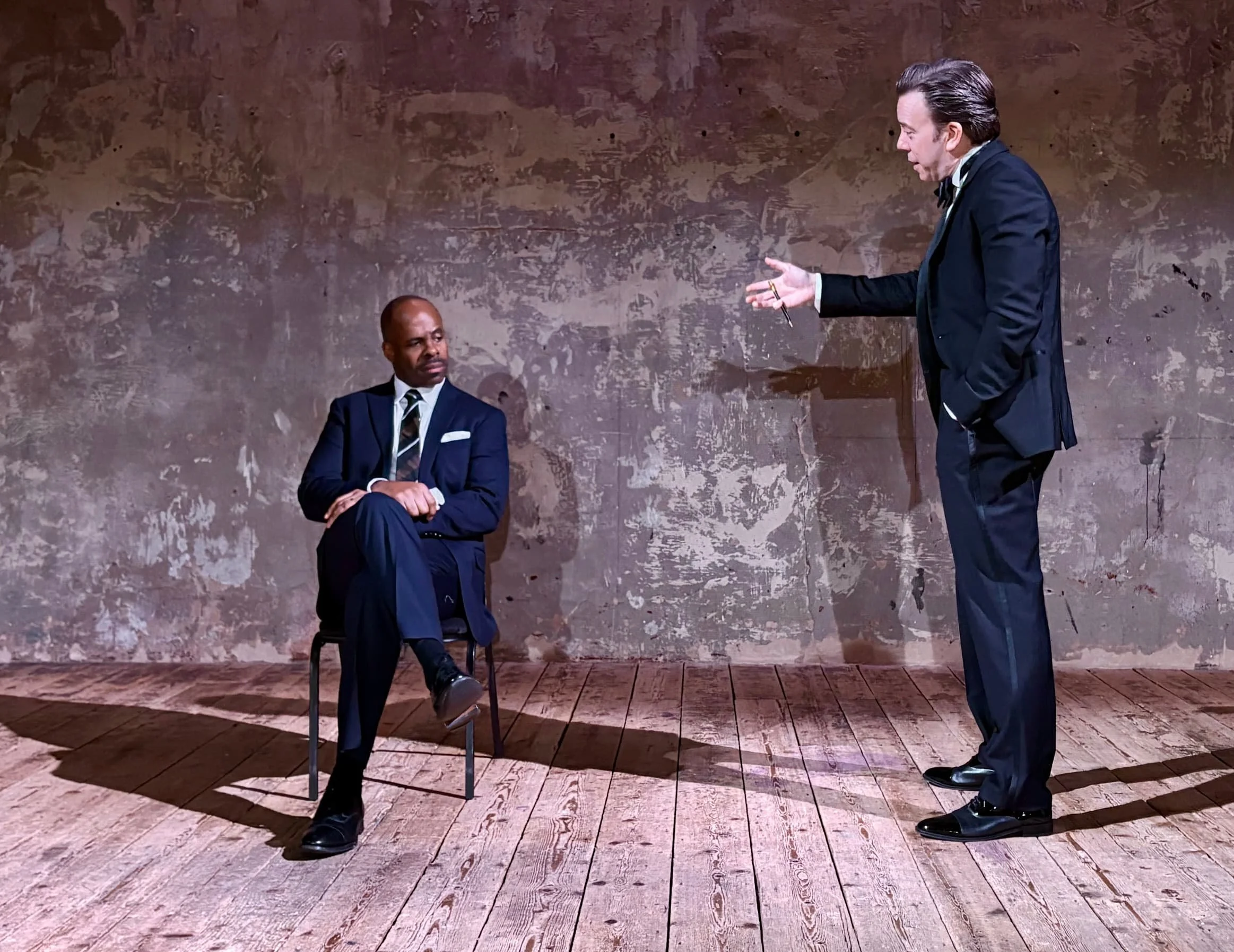Portia Julius Caesar, The Space Theatre Review
Reviewed by Cathie for Theatre and Tonic.
*Disclaimer: Gifted tickets in return for an honest review
Warning: Themes of suicide, murder, infanticide, and infertility
A mere stones throw away from the glittering glass spires of Canary Wharf, the Space Theatre contains a bloodthirsty empire of a more ancient kind. Adapted from Shakespeare by Kaitlyn Riordan, this version of Julius Caesar is a taut political thriller seen through the eyes of feminism.
With entirely new scenes and character interactions, we see the rise and assassination of Caesar from the view of Portia, Brutus’s wife.
Kay Brattan has directed this piece with incredible nuance and precision. The character dynamics are full of pathos, care and by contrast the seething scheming for true power and position in the senate. The plot is condensed into one hour forty five minutes but does not feel any less action-packed than the full Shakespeare tale. The entire story moves smoothly and utilises the space well to make it feel like we’re spectators in the streets of Rome. The sound effects were especially well done to bring about the feeling of an empire burning. The use of iambic pentameter and reuse of several key pieces of other Shakespeare plays works well to make it as true to the Bard as possible.
Portia (Kaya Bucholc) fabulously stands out in a beautiful blue dress, with the rest of the cast in black. She is the centre on which the entire story spins, despite it being about Caesar. Her performance was heartfelt, dynamic and with much pathos. Her desire for peace and her fear of losing her husband and newborn lead to catastrophic consequences for all. Calpurnia (Ellen Travaskiss) was at a turn caring and sweet, especially in earlier conversations with Portia as she longs for a child without success. Their conversations show the woes and worries many women face and are handled sympathetically in true sisterly solidarity. This is contrasted with her later cry for bloodshed and she was as magnificent in this political revenge and scheming as any Lady Macbeth. I was impressed by her nuances and raging stage gravitas. Servila (Oihane Rodriguez) was stunning in her attempts to bring about a Rome as she wished for and we see her deft scheming in many events of the play, although this, unfortunately, leads to many tragic consequences both for Rome and her own personal life. Cleopatra and Casca (Tresillian Brown) were shown in a different feminist gaze. These characters are scheming and sympathetic in a marked contrast to the other characters, their role as “other” or “foreign” was clearly branded upon themselves. They were skilfully portrayed and added another layer to the experiences and heartbreak the others were going through.
Cassius (Rosemary Lippard) and Marcus Brutus (Catherine Mises) were dynamic in their schemes and hopes for Rome and contrasted vividly with Marc Antony (Cicely Halkes-Wellstead) and Julius Caesar (Rachel Resma). All four were fabulous as scheming politicians and it’s easy to see just how much their politics and decisions are influenced by their wives. I was impressed at how powerful their performances impressed upon the audience the dynamics of Roman politics.
Much of the themes remain the same as the original play, the gaze from which it is retold has changed. This play reflects many feminist themes well and above all shows that it is the innocent who pay for politics far more than any other. As this setting was formerly a listed church, the message seems to hit home much more impressively. Overall this was a play that utilised its space well and was a phenomenal retelling of this well known play. I thoroughly enjoyed this play and could see it transferring well into a larger venue, such as the Globe or Barbican. If you’re a Shakespeare buff looking for a beautifully crafted feminist version of Julius Caesar or a lover of iambic pentameter then I whole heartedly recommend this show to you.
At The Space until 20th April




